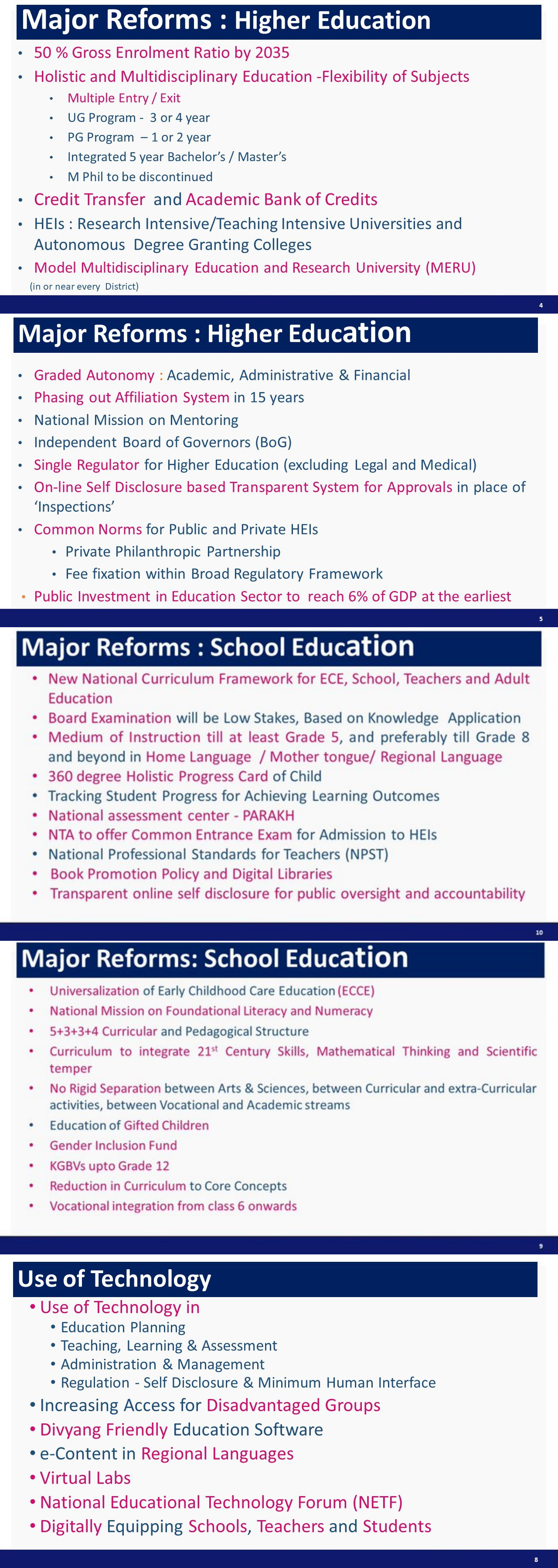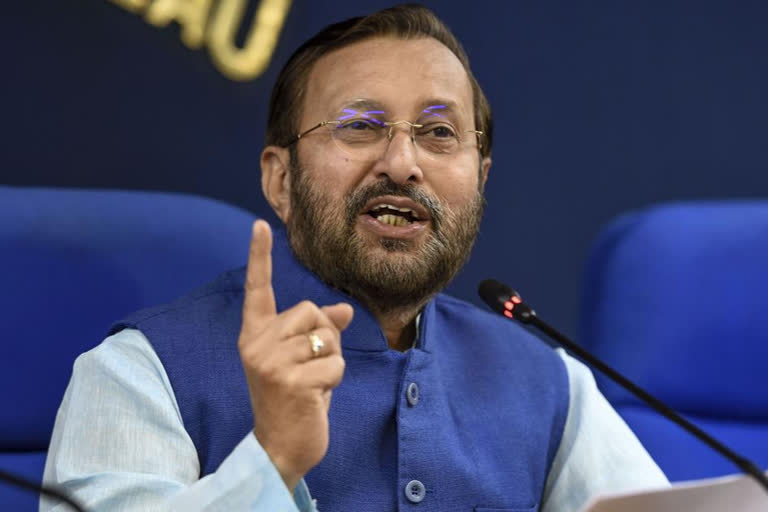New Delhi: The Union Cabinet on Wednesday approved National Education Policy 2020 bringing major reforms in higher education including a target of 50 per cent Gross Enrollment Ratio (GER) by 2035 and provision for multiple entry and exits.
Addressing a press conference here, Union Minister Prakash Javadekar said a 21st century National Education Policy (NEP) has been approved by the cabinet today.

"Union Cabinet chaired by Prime Minister Narendra Modi has given approval to the new education policy for the 21st century. It is important as for 34 years there were no changes in the education policy. I am confident that this will be welcomed by the entire society and nation as well as the world's educators," he said.
Amit Khare, Higher Education Secretary, said it was a historic day and the country has got a New Education Policy (NEP) after 34 years.
"Following the new education policy and reforms, we will achieve 50 per cent Gross Enrollment Ratio (GER) by 2035," he said.
He said the NEP includes graded academic, administrative and financial autonomy for institutions and a single regulator for all higher education, working under a self-disclosure based transparent system for approvals in place of numerous 'inspections'.
"There are over 45,000 affiliated colleges in our country. Under graded autonomy, academic, administrative and financial autonomy will be given to colleges on the basis of the status of their accreditation. E-courses will be developed in regional languages. Virtual labs will be developed and a National Educational Technology Forum (NETF) is being created," Khare said.
He said a wide consultation process was adopted in the formulation of NEP 2020.
"All 2.5 lakh gram panchayats were approached through an online platform. Opinions of governments, departments, academic and common people were taken," he said.
(ANI)
Also Read: Union HRD Minister Ramesh Pokhriyal launches India Report on Digital Education June 2020



